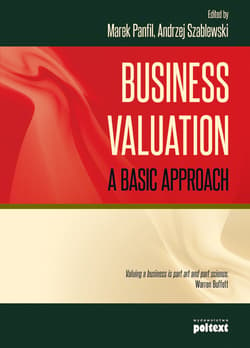Panfil Marek
52,43 zł
Najniższa cena z 30 dni przed obniżką.
69,90 zł
- sugerowana cena detaliczna
Panfil Marek
Chwilowo niedostępny
Książka. Okładka broszurowa ze skrzydełkami
86,25 zł
Najniższa cena z 30 dni przed obniżką.
115,00 zł
- sugerowana cena detaliczna
Jankowska Marlena,
Pawełczyk Mirosław,
Augustyn Sławomir,
Panfil Marek
1,0 (1)
Chwilowo niedostępny
Książka. Okładka broszurowa (miękka)
67,43 zł
Najniższa cena z 30 dni przed obniżką.
89,90 zł
- sugerowana cena detaliczna
Panfil Marek,
Andrzej Szablewski
Chwilowo niedostępny
Książka. Okładka twarda z obwolutą
Bestsellery
30,65 zł
Najniższa cena z 30 dni przed obniżką.
49,99 zł
- sugerowana cena detaliczna
Artur Nowak
6,6 (11)
Książka. Okładka twarda
32,99 zł
Najniższa cena z 30 dni przed obniżką.
54,99 zł
- sugerowana cena detaliczna
Artur Nowak,
Arkadiusz Stempin
6,1 (35)
Książka. Okładka twarda
37,39 zł
Najniższa cena z 30 dni przed obniżką.
54,99 zł
- sugerowana cena detaliczna
John Hersey
6,9 (293)
Książka. Okładka twarda
34,59 zł
Najniższa cena z 30 dni przed obniżką.
57,65 zł
- sugerowana cena detaliczna
6,6 (123)
Książka. Okładka twarda
40,79 zł
Najniższa cena z 30 dni przed obniżką.
59,99 zł
- sugerowana cena detaliczna
Jenny Erpenbeck
7,1 (260)
Książka. Okładka twarda
38,50 zł
Najniższa cena z 30 dni przed obniżką.
59,99 zł
- sugerowana cena detaliczna
Artur Nowak,
Stanisław Obirek
6,7 (101)
Książka. Okładka broszurowa ze skrzydełkami
40,60 zł
Najniższa cena z 30 dni przed obniżką.
59,90 zł
- sugerowana cena detaliczna
Tomasz P. Terlikowski
6,7 (41)
Książka. Okładka broszurowa ze skrzydełkami
50,89 zł
Najniższa cena z 30 dni przed obniżką.
79,91 zł
- sugerowana cena detaliczna
Rashid Khalidi
7,7 (126)
Książka. Okładka twarda
31,45 zł
Najniższa cena z 30 dni przed obniżką.
49,99 zł
- sugerowana cena detaliczna
Artur Nowak,
Stanisław Obirek
6,0 (153)
Książka. Okładka twarda
37,97 zł
Najniższa cena z 30 dni przed obniżką.
59,00 zł
- sugerowana cena detaliczna
Agnieszka Kozak
Książka. Okładka broszurowa (miękka)
23,99 zł
Najniższa cena z 30 dni przed obniżką.
39,99 zł
- sugerowana cena detaliczna
Thomas Brunstrøm
Książka. Okładka twarda
53,94 zł
Najniższa cena z 30 dni przed obniżką.
89,90 zł
- sugerowana cena detaliczna
Ks. Andrzej Zwoliński
Książka. Okładka twarda
20,77 zł
Najniższa cena z 30 dni przed obniżką.
32,00 zł
- sugerowana cena detaliczna
7,1 (1319)
Książka. Okładka broszurowa (miękka)
40,79 zł
Najniższa cena z 30 dni przed obniżką.
59,99 zł
- sugerowana cena detaliczna
Tomasz Awłasewicz
8,7 (3)
Książka. Okładka broszurowa ze skrzydełkami
31,74 zł
Najniższa cena z 30 dni przed obniżką.
52,90 zł
- sugerowana cena detaliczna
Freida McFadden
7,1 (646)
Książka. Okładka broszurowa (miękka)
26,94 zł
Najniższa cena z 30 dni przed obniżką.
44,90 zł
- sugerowana cena detaliczna
Paweł Sołtys
8,3 (26)
Książka. Okładka twarda
37,39 zł
Najniższa cena z 30 dni przed obniżką.
54,99 zł
- sugerowana cena detaliczna
Anonim
8,6 (27)
Książka. Okładka broszurowa ze skrzydełkami
35,79 zł
Najniższa cena z 30 dni przed obniżką.
54,90 zł
- sugerowana cena detaliczna
Iwona Jaworska
7,7 (56)
Książka. Okładka broszurowa ze skrzydełkami
33,99 zł
Najniższa cena z 30 dni przed obniżką.
56,90 zł
- sugerowana cena detaliczna
László Krasznahorkai
6,5 (104)
Książka. Okładka broszurowa ze skrzydełkami
67,99 zł
Najniższa cena z 30 dni przed obniżką.
99,99 zł
- sugerowana cena detaliczna
Norman Davies
8,7 (21)
Książka. Okładka twarda z obwolutą
35,79 zł
Najniższa cena z 30 dni przed obniżką.
54,90 zł
- sugerowana cena detaliczna
Natalia Kulpińska
Książka
33,99 zł
Najniższa cena z 30 dni przed obniżką.
54,90 zł
- sugerowana cena detaliczna
Mariola Lorek
8,2 (35)
Książka. Okładka broszurowa (miękka)
33,94 zł
Najniższa cena z 30 dni przed obniżką.
49,90 zł
- sugerowana cena detaliczna
Weronika Tomala
7,5 (224)
Książka. Okładka broszurowa (miękka)
27,99 zł
Najniższa cena z 30 dni przed obniżką.
44,90 zł
- sugerowana cena detaliczna
Sylwia Winnik
7,9 (103)
Książka. Okładka broszurowa ze skrzydełkami
29,26 zł
Najniższa cena z 30 dni przed obniżką.
47,99 zł
- sugerowana cena detaliczna
Wiktoria Klepacka
9,6 (8)
Książka. Okładka broszurowa (miękka)
29,94 zł
Najniższa cena z 30 dni przed obniżką.
49,90 zł
- sugerowana cena detaliczna
Sylwia Kubik
8,2 (167)
Książka. Okładka broszurowa ze skrzydełkami
33,94 zł
Najniższa cena z 30 dni przed obniżką.
49,90 zł
- sugerowana cena detaliczna
Czyżewski Piotr
Książka. Okładka broszurowa (miękka)
30,94 zł
Najniższa cena z 30 dni przed obniżką.
49,99 zł
- sugerowana cena detaliczna
Agnieszka Krawczyk
7,1 (52)
Książka. Okładka broszurowa (miękka)
30,79 zł
Najniższa cena z 30 dni przed obniżką.
54,99 zł
- sugerowana cena detaliczna
Monika Prześlakowska
7,6 (55)
Książka. Okładka broszurowa ze skrzydełkami
31,45 zł
Najniższa cena z 30 dni przed obniżką.
49,90 zł
- sugerowana cena detaliczna
Grycman Julia
8,5 (13)
Książka. Okładka broszurowa (miękka)
77,94 zł
Najniższa cena z 30 dni przed obniżką.
129,90 zł
- sugerowana cena detaliczna
Opracowanie Zbiorowe
Książka. Okładka twarda
40,78 zł
Najniższa cena z 30 dni przed obniżką.
54,90 zł
- sugerowana cena detaliczna
Samantha Young
7,5 (1768)
Książka. Okładka broszurowa (miękka)
46,99 zł
Najniższa cena z 30 dni przed obniżką.
75,00 zł
- sugerowana cena detaliczna
Kubasik Katarzyna
Książka. Okładka broszurowa (miękka)
41,40 zł
Najniższa cena z 30 dni przed obniżką.
69,00 zł
- sugerowana cena detaliczna
Praca zbiorowa
Książka. Okładka broszurowa (miękka)
41,40 zł
Najniższa cena z 30 dni przed obniżką.
69,00 zł
- sugerowana cena detaliczna
Praca zbiorowa
Książka. Okładka broszurowa (miękka)
41,40 zł
Najniższa cena z 30 dni przed obniżką.
69,00 zł
- sugerowana cena detaliczna
Praca zbiorowa
Książka. Okładka broszurowa (miękka)
39,74 zł
Najniższa cena z 30 dni przed obniżką.
54,99 zł
- sugerowana cena detaliczna
Vladimir Wolff
Książka. Okładka broszurowa (miękka)
35,86 zł
Najniższa cena z 30 dni przed obniżką.
54,99 zł
- sugerowana cena detaliczna
Richard Osman
8,0 (1)
Książka. Okładka broszurowa ze skrzydełkami
37,74 zł
Najniższa cena z 30 dni przed obniżką.
62,90 zł
- sugerowana cena detaliczna
Richard Flanagan
7,6 (3255)
Książka. Okładka broszurowa ze skrzydełkami
22,86 zł
Najniższa cena z 30 dni przed obniżką.
34,99 zł
- sugerowana cena detaliczna
Agnieszka Krawczyk
8,4 (7)
Książka. Okładka broszurowa (miękka)
35,99 zł
Najniższa cena z 30 dni przed obniżką.
59,99 zł
- sugerowana cena detaliczna
Szarota Tomasz,
Emil Marat,
Michał P. Wójcik
7,3 (11)
Książka. Okładka broszurowa ze skrzydełkami
35,99 zł
Najniższa cena z 30 dni przed obniżką.
59,99 zł
- sugerowana cena detaliczna
Noam Josephides
6,7 (60)
Książka. Okładka broszurowa ze skrzydełkami
29,94 zł
Najniższa cena z 30 dni przed obniżką.
49,90 zł
- sugerowana cena detaliczna
Weronika Mathia
7,5 (1252)
Książka. Okładka broszurowa (miękka)
36,93 zł
Najniższa cena z 30 dni przed obniżką.
59,99 zł
- sugerowana cena detaliczna
Stephen King
6,7 (5373)
Książka. Okładka twarda
41,94 zł
Najniższa cena z 30 dni przed obniżką.
69,90 zł
- sugerowana cena detaliczna
Katherine Stewart
6,7 (45)
Książka. Okładka twarda
40,79 zł
Najniższa cena z 30 dni przed obniżką.
59,99 zł
- sugerowana cena detaliczna
Kristoffer Rønneberg
7,9 (77)
Książka. Okładka broszurowa ze skrzydełkami
31,59 zł
Najniższa cena z 30 dni przed obniżką.
49,99 zł
- sugerowana cena detaliczna
Uketsu
7,5 (1646)
Książka. Okładka broszurowa ze skrzydełkami
33,99 zł
Najniższa cena z 30 dni przed obniżką.
55,00 zł
- sugerowana cena detaliczna
Stephen King
6,4 (833)
Książka. Okładka broszurowa ze skrzydełkami
21,55 zł
Najniższa cena z 30 dni przed obniżką.
27,00 zł
- sugerowana cena detaliczna
Friedrich Nietzsche
Książka. Okładka broszurowa (miękka)
13,75 zł
Najniższa cena z 30 dni przed obniżką.
19,90 zł
- sugerowana cena detaliczna
Opracowanie Zbiorowe
1,0 (1)
Książka. Okładka broszurowa (miękka)
26,99 zł
Najniższa cena z 30 dni przed obniżką.
40,01 zł
- sugerowana cena detaliczna
Darko Cvijetic
8,2 (122)
Książka. Okładka broszurowa ze skrzydełkami
30,79 zł
Najniższa cena z 30 dni przed obniżką.
54,99 zł
- sugerowana cena detaliczna
Naomi Watts
7,4 (58)
Książka. Okładka broszurowa ze skrzydełkami
67,99 zł
Najniższa cena z 30 dni przed obniżką.
99,99 zł
- sugerowana cena detaliczna
Marek Górlikowski
8,0 (37)
Książka. Okładka twarda
29,99 zł
Najniższa cena z 30 dni przed obniżką.
49,99 zł
- sugerowana cena detaliczna
Artur Nowak,
Stanisław Obirek
5,7 (75)
Książka. Okładka twarda
35,94 zł
Najniższa cena z 30 dni przed obniżką.
59,90 zł
- sugerowana cena detaliczna
Grzegorz Ryś
6,8 (4)
Książka. Okładka broszurowa (miękka)
32,99 zł
Najniższa cena z 30 dni przed obniżką.
54,99 zł
- sugerowana cena detaliczna
Samantha Harvey
6,1 (242)
Książka. Okładka broszurowa ze skrzydełkami
29,25 zł
Najniższa cena z 30 dni przed obniżką.
64,99 zł
- sugerowana cena detaliczna
Ruth Millington
7,8 (26)
Książka. Okładka twarda
37,77 zł
Najniższa cena z 30 dni przed obniżką.
49,90 zł
- sugerowana cena detaliczna
Kamil Iwanicki
7,3 (109)
Książka. Okładka broszurowa (miękka)
28,83 zł
Najniższa cena z 30 dni przed obniżką.
44,99 zł
- sugerowana cena detaliczna
Viktor E. Frankl
10,0 (1)
Książka. Okładka broszurowa ze skrzydełkami
29,94 zł
Najniższa cena z 30 dni przed obniżką.
49,90 zł
- sugerowana cena detaliczna
Adam Zadworny
8,0 (1544)
Książka. Okładka twarda


































































